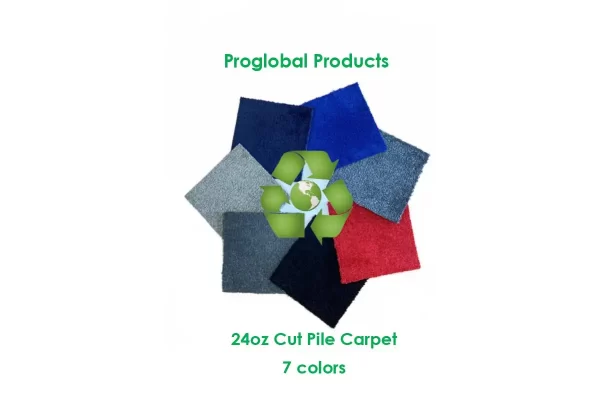Following results of a survey, Exhibit Designers + Producers Association (EDPA) aims to set a benchmark for excellence among exhibit house vendors. Introducing the EDPA RFP Certification Program this January, EDPA seeks to provide a directory of exhibit house vendors who meet standards and best practices as determined by the association.
 Based on research from Exhibit Surveys to Corporate Exhibitors conducted in 2012, there “was unanimous enthusiasm for the concept of an EDPA ‘Good Housekeeping Seal’” that would evaluate the business integrity and operational practices and capabilities of vendors.
Based on research from Exhibit Surveys to Corporate Exhibitors conducted in 2012, there “was unanimous enthusiasm for the concept of an EDPA ‘Good Housekeeping Seal’” that would evaluate the business integrity and operational practices and capabilities of vendors.
“People will feel more enthusiastic about the industry; it raises professionalism and commitment. It would be good for all of us, which will drive more spending in the face to face marketing business,” said Justin Hersh, founder and CEO, Group Delphi.
Prior to the certification program, each client likely invented their own qualification process when selecting companies.
“There isn’t transparency about how industry companies do business,” Hersh added. “Customers will have more confidence in the selection of vendors, and ultimately [it creates] a more level playing field for the best companies in the industry.”
EDPA has developed a certification program that would list complying vendors in good standing. According to EDPA officials, its certification may even be considered by corporations during RFP and RFQ processes.
“As the [certification] process is similar to that of a typical RFP, it lends the credibility and assurance to a client’s procurement team that they are choosing the best partner,” said Laurie Kamal, vice president of finance, Mirror Show Management.
To be certified by iCompli, a firm that audits consumer and business data and media, member companies must meet the standards and practices approved by the EDPA. Experienced with auditing tradeshows, iCompli developed the methodology for the EDPA RFP Certification. It has also established a similar process for Green Meetings Industry Council’s ASTM Certification in event sustainability.
Rather than commissioning EDPA committee members to certify vendors, it was important to consult an outside firm to ensure detailed company data would not be made public. As an independent third party, all data submitted to iCompli are to remain confidential.
“If the process were done by EDPA, there would be tremendous fear that information could end up in competitor’s hands,” shared Hersh.
Corporations may request certification reports for qualified vendors directly from the auditor for a fee.
Speaking on behalf of the New York-based exhibit design and customer experience firm, Kamal expressed confidence in the value of the certification program for her firm.
“In becoming certified, we see a fresh ability to market ourselves to potential new clients and achieve a competitive advantage in future new business proposals,” said Kamal. “Being an EDPA Certified company will demonstrate that we exceed the high standards of excellence within our industry in various areas, such as business practices, quality of products and customer service, to name a few.”
The application process requires submittal of formal documentation, an application fee and annual renewal to maintain status in the EDPA RFP Certification Directory. Companies receive 120 days to complete the application for consideration.
Costs for certification include a $500 application fee and a $2,000 certification fee for up to two locations upon approval. All locations are required to be verified and listed, priced at $100 for every additional office location to the total cost.
Certified companies are to demonstrate and promote five factors including Ethical Business Practices, Industry Experience/Participation, Operational Methodology, Fiscal Responsibility and Environmental Stewardship.
Vendors not meeting requirements may reapply after 60 days at a cost of $500 for the review process.
“Whether there is a cost-benefit to the certification has yet to be projected. Unless the program exposes opportunity in the market place through a continually evolving and relevant curriculum, it will not provide a return to certified companies,” according to Dan Greene, managing director, Nolan Advisory Services.
In a session at EDPA Access, an executive conference and showcase for exhibit designers, builders and suppliers held early December 2013 in Marco Island, Fla., however, questions were raised about implementing the certification program.
Exhibit houses attending the EDPA Access session voiced some concerns regarding the verification itself. Among the commentary was the need to qualify those who would certify exhibit houses, conduct audits on issued certifications, and install a checks and balance system to help ensure neutrality and fairness.
Also at issue are special circumstances such as exhibit houses utilizing outsourced vendors for fabric, graphics, custom construction, lighting, truss, etc. The association has yet to address its certification process for work performed by those not directly employed by a display house.
“For now, the program does not really involve system manufacturers and/or OEM [non direct selling] providers. It is gear[ed] towards custom houses primarily,” stated Kevin Carty, vice president, Classic Exhibits. “My hope is that this will become inclusive of all OEM’s and system manufacturers soon as well.”
Another consideration is the attrition rate of member companies that do not qualify for certification and who, consequently, would not be promoted by the association.
“Without the opportunity to monetize the time and effort required for a meaningful and ongoing certification program, I will speculate that more companies will not have certification than the number that does have certification,” Greene commented.
While it would seem that a certification backed by an industry association could add nicely to the resume of an exhibit house, concerns regarding the certification process may bring more questions than praise for qualifying vendors.
Hersh assures that EDPA committee members are dedicated to continue improving and evolving the program as feedback is received from both clients and vendors.




























